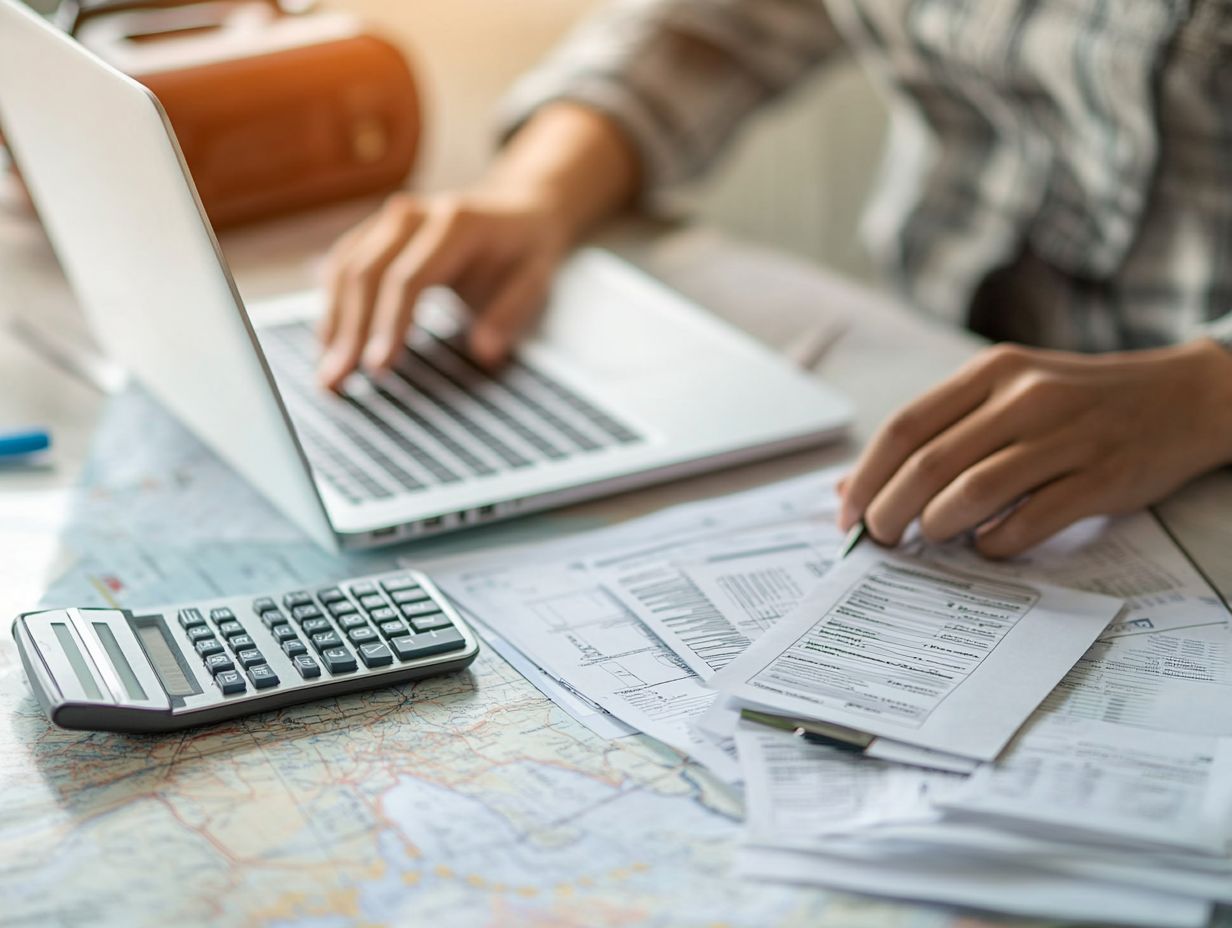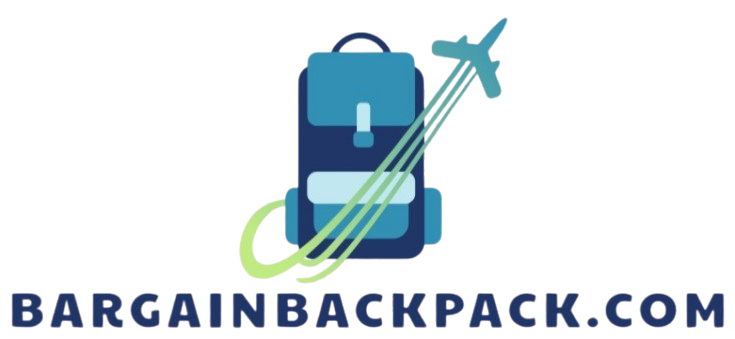How to Manage Travel Expenses?
Traveling can be one of life s greatest joys, yet managing expenses has the potential to turn that joy into stress. Get ready to explore the world like never before! It’s essential to start planning your budget now.
Recognizing the significance of a well-structured budget is crucial for enjoying your adventures without the burden of financial worries. This guide will empower you to identify your travel expenses, establish limits, and uncover budget-friendly options for accommodations and flights.
You will also find practical tips for tracking your spending and managing unexpected costs, ensuring your travels remain both enjoyable and financially savvy.
Contents
- Key Takeaways:
- Creating a Budget for Travel
- Ways to Save on Travel Expenses
- Tracking and Organizing Expenses
- Tools and Strategies for Keeping Track
- Managing Travel Expenses while on the Road
- Staying Within Budget While Traveling
- Dealing with Unexpected Expenses
- Frequently Asked Questions
- What are travel expenses?
- Why is it important to manage travel expenses?
- What are some tips for managing travel expenses effectively?
- How can I keep track of my travel expenses?
- What are some cost-saving measures I can use when managing travel expenses?
- What should I do if I go over my travel expense budget?
Key Takeaways:

- Creating a budget and setting limits for travel expenses is crucial to avoid overspending.
- Save on travel expenses by opting for budget-friendly accommodations and finding cheap flights using strategies like flexible dates and booking in advance.
- Track and organize your expenses while traveling using tools and strategies like budgeting apps and keeping receipts to stay within your budget and be prepared for unexpected expenses.
Why is it Important?
Understanding the importance of managing travel expenses is crucial for you, whether you’re an employee or an employer, especially during business trips. It directly impacts your company’s financial health and tax liability.
By ensuring proper expense management, you can accurately track all travel-related costs, making it easier to pinpoint tax-deductible expenses (which are costs that can reduce your taxable income) and streamline the reimbursement process. Implementing robust travel guidelines and compliance checks not only protects your corporate credit, which is crucial for managing business expenses, but also enhances financial visibility, allowing you to optimize travel investments in 2023 and beyond.
Effective management of travel expenses offers you significant advantages, particularly regarding tax compliance and maintaining transparency in financial records. Tax-deductible expenses can cover meals, lodging, transportation, and other essential costs incurred while traveling for work.
Utilizing travel software can simplify this entire process by automating expense reporting and providing real-time insights into travel spending. Automated systems reduce human error, enhance accuracy, and ensure that all receipts and documentation are properly managed.
By systematically reviewing travel expenses, you can not only take advantage of potential deductions but also foster a culture of accountability and prudent spending among your employees.
Creating a Budget for Travel
Establishing a travel budget is crucial for maintaining the financial viability of business trips and keeping employee expenses within acceptable limits. By grouping travel expenses into lodging, transportation, meals, and other eligible costs, you can create a transparent framework for managing expenses.
This approach helps prevent overspending and streamlines the reimbursement process. Embracing effective travel management practices will enhance your overall budgeting process, ensuring compliance with travel guidelines while maximizing the advantages of corporate credit cards.
How to Identify Expenses and Set Limits
Identifying your expenses and setting limits is an essential step in managing travel costs, especially for business trips. This practice enables you to maintain control over lodging, transportation, and meal allowances.
By clearly defining direct expenses and establishing expense limits, you can create a structured approach to claims that not only protects your financial resources but also ensures compliance with travel policies.
Travel expenses come in various forms, from hotel accommodations that fluctuate based on location and season to transportation choices like flights, trains, or car rentals, each featuring its own pricing structure. Meals, often capped daily, can significantly impact your overall spending. It s crucial to monitor these expenses diligently; doing so allows you to reassess budgets and curb overspending.
Communicating expense limits effectively can eliminate confusion among team members about what can be claimed, fostering a transparent environment where costs are clearly understood and minimized. This paves the way for seamless reimbursement processes.
In summary, managing travel expenses is vital for ensuring financial wellbeing during business trips. By creating a solid budget, identifying expenses, and setting clear limits, you can take control of your travel spending. Are you ready to take control of your travel budget today?
Ways to Save on Travel Expenses
Finding ways to save on travel expenses is crucial for businesses like yours that seek to optimize budgets. This ensures employees enjoy comfortable experiences during their trips.
By using effective travel management strategies, you can uncover budget-friendly accommodation options. You can also discover tips for securing cheap flights and take full advantage of travel rewards programs to significantly reduce costs.
Implementing online booking tools and analyzing travel behavior enhances your cost reduction efforts. This will elevate your overall expense management.
Budget-Friendly Accommodation Options

When you embark on business trips, selecting budget-friendly accommodation can dramatically influence your travel expenses. This enables you to allocate your funds with precision.
By using online booking platforms and various travel tools, you can uncover affordable lodging options. You won t have to compromise on quality or convenience.
This strategic approach not only optimizes employee expenses. It also ensures you adhere to established expense limits during your travels.
Exploring diverse types of budget-friendly accommodations is essential for the discerning traveler. You have options at your fingertips, from traditional hotels that offer corporate discounts to hostels that provide a shared environment.
Consider unique lodging choices like vacation rentals. They can enhance your experience while keeping costs in check.
Utilizing online platforms effectively simplifies comparisons. This reveals hidden gems that deliver exceptional value.
Tracking these costs against your overall travel budget serves a dual purpose. It helps maintain financial discipline and enables you to make informed decisions for future trips.
Tips for Finding Cheap Flights
Finding cheap flights is essential for managing your travel expenses effectively. This is particularly crucial during frequent business trips where transportation costs can skyrocket.
By using travel software and online booking tools, you can compare prices across various airlines. Set alerts for fare drops and discover last-minute deals to secure the best rates.
This smart strategy optimizes your costs. It also streamlines your travel management.
Being flexible with your travel dates can lead to significant savings. Flight prices often vary based on demand.
If you re open to adjusting your schedule, flying on weekdays rather than weekends can result in lower fares.
Booking flights well in advance is wise. Many airlines offer discounts for early reservations.
Including transportation expenses in a comprehensive budget allows for better tracking. This enables you to allocate funds more efficiently while keeping travel within financial limits.
Tracking and Organizing Expenses
Tracking and organizing expenses is essential for mastering effective expense management. This is especially important during business trips where costs can add up quickly.
By using automated processes and tools that help analyze travel spending, you can streamline your expense reporting. Categorizing costs makes it easier to spot trends and identify areas ripe for cost optimization.
Implementing a robust expense management system provides you with enhanced oversight. It ensures accountability for employee expenses while ensuring that every claim aligns with established guidelines.
Tools and Strategies for Keeping Track
Using the right tools and strategies to manage your travel expenses is vital for effective expense management during business trips. By employing travel software and automated processes, you can significantly reduce the time spent on expense reporting. This not only helps maintain financial accuracy and compliance but also ensures a seamless reimbursement process for employees. Integrating various tracking tools enhances visibility over employee expenses and streamlines your overall travel management strategy.
Consider specific expense management software like Expensify or Concur. These platforms offer features such as real-time expense tracking, receipt scanning, and mobile access, all of which facilitate a more efficient workflow. Automation is essential not only does it save you time, but it also minimizes errors that often occur with manual entry.
To encourage adherence to expense guidelines, offering training sessions can be invaluable. These sessions should clearly outline policies and demonstrate how to use the tools effectively. Regular audits and feedback loops further reinforce compliance, ensuring that everyone understands the importance of accurate reporting and its impact on the company s financial health.
Managing Travel Expenses while on the Road
Managing travel expenses while on the road is essential for keeping business trips within budget and ensuring that employee expenditures remain controlled. By setting clear guidelines for accommodation costs, meal allowances, and other related expenses, you can encourage financial transparency and accountability among your traveling team.
Effectively communicating travel policies and conducting regular check-ins during the trip can greatly enhance the management of expense claims, allowing for a smoother and more organized travel experience.
Staying Within Budget While Traveling

Staying within budget while traveling is vital for both you and your employer, as it directly influences the overall financial health of the organization and ensures that your travel expenses align with established limits. By being aware of allowable costs and keeping a close eye on your expenses, you can help facilitate a smoother reimbursement process while maintaining compliance with travel guidelines. Utilizing strategies like per diem allowances which refer to a daily allowance for expenses can further enhance your ability to manage costs effectively.
Consider leveraging mobile apps designed for expense tracking; these can simplify monitoring your expenditures in real-time. These tools assist you in documenting receipts and categorizing expenses while providing reminders about budget limits, fostering a sense of accountability.
Before embarking on your journey, ensure you re familiar with your company s per diem rates and allowances. Knowing these figures upfront will enable you to make informed spending decisions. Adhering to these established parameters streamlines the reimbursement process and enhances the organization s ability to forecast and manage travel budgets with greater accuracy.
Dealing with Unexpected Expenses
Navigating unexpected expenses during business trips is a common challenge that demands thoughtful planning and management strategies. By establishing contingency plans and setting aside emergency funds, you can effectively prepare for unforeseen costs that may arise whether from changes in travel behavior, accommodation issues, or transportation hiccups.
A proactive approach not only safeguards your budget but also ensures that your employees feel supported while traveling. This allows them to concentrate on their primary objectives without the burden of financial stress.
Contingency Plans and Emergency Funds
Creating contingency plans and setting aside emergency funds is critical for effective travel management, especially when it comes to handling unexpected expenses during business trips. By setting aside emergency funds, you enable your organization to support employees in navigating unforeseen costs. This leads to enhanced financial visibility and peace of mind.
This proactive strategy boosts employee satisfaction and streamlines ways to manage expenses while ensuring compliance with travel policies.
To start, assess potential risks, such as flight cancellations or medical emergencies. Tailor your emergency funds accordingly. Evaluate typical expenses from past trips to determine an appropriate reserve amount that suits your needs.
Clear communication regarding the purpose and availability of these funds is essential. It ensures that employees fully understand when to utilize them and how they align with broader ways to manage expenses. This clarity fosters responsible spending, allowing your teams to remain agile and make necessary adjustments while still adhering to limits on spending.
Frequently Asked Questions
What are travel expenses?
Travel expenses refer to all the costs associated with traveling, such as transportation, accommodation, meals, and other incidental expenses.
Why is it important to manage travel expenses?

Managing travel expenses is crucial for staying on budget and making the most of your trips!
What are some tips for managing travel expenses effectively?
To manage travel expenses effectively, plan ahead, set a budget, keep track of expenses, and utilize how to save money when traveling by booking in advance or choosing affordable accommodations.
How can I keep track of my travel expenses?
You can keep track of your travel expenses by using a budgeting app, creating a spreadsheet, or keeping physical receipts organized by category.
What are some cost-saving measures I can use when managing travel expenses?
Some cost-saving measures include booking in advance, choosing budget-friendly accommodations, opting for public transportation instead of taxis, and taking advantage of loyalty programs and discounts.
What should I do if I go over my travel expense budget?
If you go over your travel expense budget, review your expenses and identify where you can cut back. You can also negotiate with vendors for better rates or consider using a corporate travel management service to help you stay within your budget.
Start planning your travel budget now to maximize your experiences!






